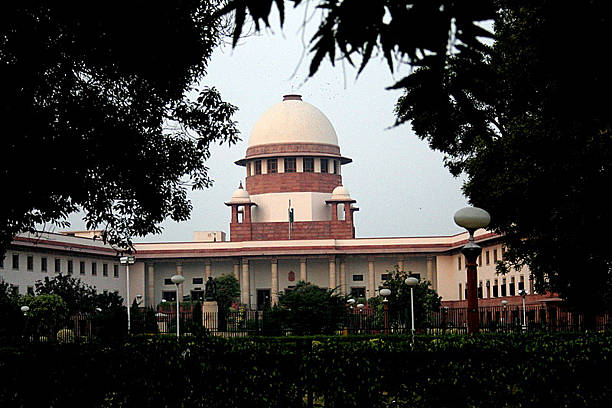The inviolable nature of the human personality is manifested in the ability to make decisions on matters intimate to human life. The autonomy of the individual is associated over matters which can be kept private. These are concerns over which there is a legitimate expectation of privacy. The body and the mind are inseparable elements of the human personality. The integrity of the body and the sanctity of the mind can exist on the foundation that each individual possesses an inalienable ability and right to preserve a private space in which the human personality can develop….” – K S Puttaswamy v. Union of India, (2017) 10 SCC 1.
Recently, an appeal was filed in the Hon’ble Supreme Court of India, titled, X v. Principal Secretary, Health and Family Welfare Department, Govt. of NCT of Delhi and Another, (Civil Appeal No. 5802 of 2022) against an Order of the High Court of Delhi. The appellant, an unmarried woman, aged about twenty-five years, who had become pregnant because of a consensual relationship, invoked the writ jurisdiction of the High Court seeking its permission to terminate her pregnancy before the completion of twenty-four weeks as her partner had refused to marry her at the last stage.
At the time of the institution of the Writ Petition before the High Court, the appellant was carrying a single intrauterine pregnancy corresponding to a gestational age of twenty-two weeks. Hence, the appellant sought permission to terminate her pregnancy in terms of Section 3(2)(b) of the Medical Termination of Pregnancy (MTP) Act, 1971 and Rule 3B(c) of the Medical Termination of Pregnancy (MTP) Rules, 2003. The High Court held that the Petitioner, who is an unmarried woman and whose pregnancy arises out of a consensual relationship, is not covered by any of the Clauses under the MTP Rules, 2003 and therefore, Section 3(2)(b) of the MTP Act is not applicable to the facts of the case. This order of the High Court gave rise to the appeal and the Supreme Court modified the order of the High Court permitting the appellant to terminate her pregnancy. As the case involved a substantial question of law, the Supreme Court took it up for further consideration and transferred the Writ Petition before the Delhi High Court to itself.
As a result, it will be apposite to briefly discuss the important judgment pronounced by the Supreme Court in X v. Principal Secretary, Health and Family Welfare Department, Govt. of NCT of Delhi and Another (Decided on September 29, 2022). After hearing both the parties at length, the Supreme Court held that by eliminating the word “married woman or her husband” from the scheme of the MTP Act, the legislature intended to clarify the scope of Section 3 of the MTP Act and bring pregnancies which occur outside the institution of marriage within the protective umbrella of the law. The Court held that by framing Rule 3B of the MTP Rules, the legislature intended to solve the mischief, so to speak, of women being unable to access abortions when their lives underwent significant changes impacting their physical and mental health, and their decision to have a child was impacted after the length of the pregnancy exceeded twenty weeks.
The Court also discussed the Minutes of the Meeting of the Expert Committee which was held on 22nd June, 2021 for deliberating upon and drafting the MTP Rules in which the Committee dealt with, inter alia, category of women under Rule 3B of the MTP Rules such as survivors of sexual violence/rape; mentally challenged women, minors, women with disabilities; foetal anomalies; conception in lactational amenorrhea period; single women (such as unwed women (major), divorced and widowed, separated women); women who are facing difficulties in contexts of humanitarian setting/emergencies and/or natural disasters; women victims of domestic violence/gender-based violence etc. The members of the Expert Committee urged the inclusion of women in Rule 3B, who often delay revealing the pregnancy or making decisions as to its continuance, for various reasons.
The Court while construing Rule 3B of the MTP Rules held that all the different categories in Rule 3B represent women who seek an abortion after twenty weeks either due to a delay in recognizing pregnancy, or some other change in their environment impacting their decision on whether the pregnancy is wanted or unwanted and the law recognizes the myriad ways in which a pregnancy may cause distress in such situations and cause grave injury to her physical and mental health. It gives such women latitude in seeking out the termination of an unwelcome pregnancy by extending the gestational period up to which the termination is legally permissible.
The Court discussed the ambit of reproductive rights and held that such a right is not restricted to the right of women to have or not have children, but it also includes the constellation of freedoms and entitlements that enable a woman to decide freely on all matters relating to her sexual and reproductive health. Reproductive rights include the right to access education and information about contraception and sexual health, the right to decide whether and what type of contraceptives to use, the right to choose whether and when to have children, the right to choose the number of children, the right to access safe and legal abortions, and the right to reproductive healthcare. Women must also have the autonomy to make decisions concerning these rights, free from coercion or violence.
The Court dwelled upon the right to dignity and held that if women with unwanted pregnancies are forced to carry their pregnancies to term, the state would be stripping them of the right to determine the immediate and long-term path their lives would take. Depriving women of autonomy not only over their bodies but also over their lives would be an affront to their dignity. The right to dignity would be under attack if women were forced to continue with unwanted pregnancies.
The Court directed the state to ensure that information regarding reproduction and safe sexual practices is disseminated to all parts of the population and that the state must see to it that all segments of society are able to access contraceptives to avoid unintended pregnancies and plan their families. Medical facilities and Registered Medical Practitioners (RMPs) must be present in each district and must be affordable to all. The government must ensure that RMPs treat all patients equally and sensitively. Treatment must not be denied on the basis of one’s caste or due to other social or economic factors. It is only when these recommendations become a reality that we can say that the right to bodily autonomy and the right to dignity are capable of being realized.
Therefore, the Judgment pronounced by Justices D.Y. Chandrachud, A.S. Bopanna and J.B. Pardiwala in X v. Principal Secretary, Health and Family Welfare Department, Govt. of NCT of Delhi and Another, is a significant judgment as it has lucidly explained the object and purpose of the MTP Act, the Constitutional values animating the interpretation of the MTP Act as well as the MTP Rules, the right to reproductive autonomy, the right to dignity, and has rightly held that MTP Amendment Act 2021 intended to extend the benefits of the statute to all women, including single and unmarried women.
(Muneeb Rashid Malik is an Advocate and Associate at Luthra and Luthra Law Offices India).







